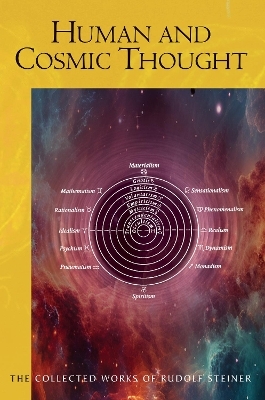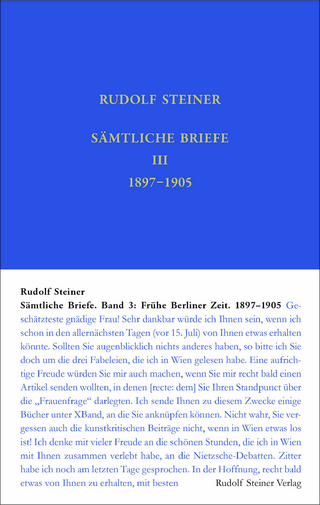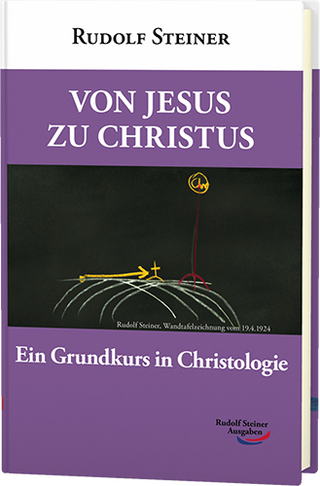
Human and Cosmic Thought
Rudolf Steiner Press (Verlag)
978-1-85584-664-7 (ISBN)
What convinces us of the truth of a point of view? Why do we find it difficult to understand or accept differing perspectives? What are the inner foundations of our knowledge?
In these concentrated and aphoristic lectures, Rudolf Steiner speaks of twelve main philosophical standpoints, and the importance of comprehending each one of them. Appreciating the variety of world-views not only sharpens our thinking and makes it more flexible, but helps us to overcome a narrow-minded one sidedness, promoting tolerance of other people and their opinions. The future of philosophy rests not upon defending one single perspective and refuting all others, but in learning to experience the validity of all points of view.
Steiner goes on to explain how each philosophical standpoint is coloured by a particular ‘soul mood’, which influences the way we pursue knowledge as individuals. He characterizes the work of several thinkers in this way, throwing light on their unique contributions to human culture. Through such insights into the true nature of human thinking, we are led to understand the quality of cosmic thought, and how the human being is a ‘thought which is thought by the Hierarchies of the cosmos’.
This revised translation is complemented with an introduction by Robert McDermott, editorial notes and appendices by Frederick Amrine and an index.
Rudolf Steiner (1861–1925) was born in the small village of Kraljevec, Austro-Hungarian Empire (now in Croatia), where he grew up. As a young man, he lived in Weimar and Berlin, where he became a well-published scientific, literary, and philosophical scholar, known especially for his work with Goethe’s scientific writings. At the beginning of the twentieth century, he began to develop his early philosophical principles into an approach to systematic research into psychological and spiritual phenomena. Formally beginning his spiritual teaching career under the auspices of the Theosophical Society, Steiner came to use the term Anthroposophy (and spiritual science) for his philosophy, spiritual research, and findings. The influence of Steiner’s multifaceted genius has led to innovative and holistic approaches in medicine, various therapies, philosophy, religious renewal, Waldorf education, education for special needs, threefold economics, biodynamic agriculture, Goethean science, architecture, and the arts of drama, speech, and eurythmy. In 1924, Rudolf Steiner founded the General Anthroposophical Society, which today has branches throughout the world. He died in Dornach, Switzerland.
| Erscheinungsdatum | 25.04.2024 |
|---|---|
| Reihe/Serie | The Collected Works of Rudolf Steiner |
| Einführung | R. McDermott |
| Übersetzer | C. Davy, F. Amrine |
| Verlagsort | East Sussex |
| Sprache | englisch |
| Maße | 155 x 235 mm |
| Themenwelt | Weitere Fachgebiete ► Anthroposophie |
| ISBN-10 | 1-85584-664-0 / 1855846640 |
| ISBN-13 | 978-1-85584-664-7 / 9781855846647 |
| Zustand | Neuware |
| Informationen gemäß Produktsicherheitsverordnung (GPSR) | |
| Haben Sie eine Frage zum Produkt? |
aus dem Bereich


